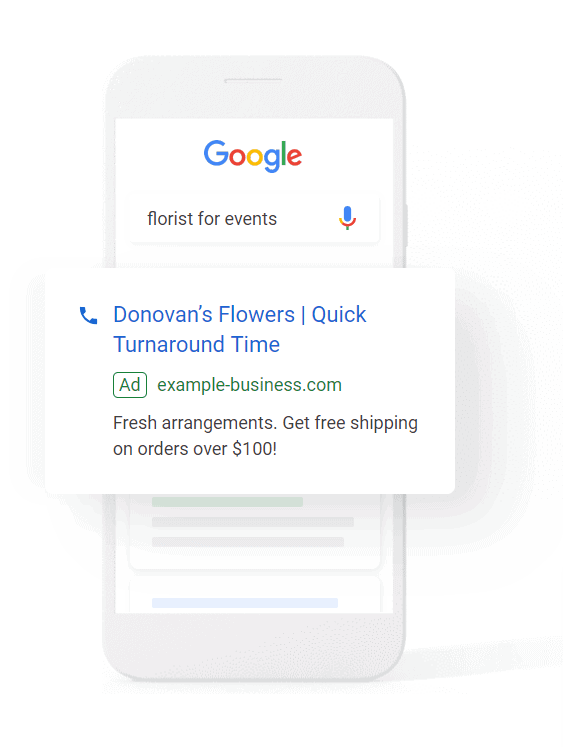When it comes to online discovery, it is undeniable that search engines rule the roost for it. More often than not, once you open a browser, the default homepage is a search engine (for most, it’s Google). Prospective consumers become more aware of your brand when they see your website ranking high for multiple search terms, even if they don’t actually click on it. Furthermore, search engine traffic tends to see higher conversion rates as search is an intent-driven marketing channel. This means that the users that go on these platforms, already have an expressed interest — and using keywords to find what they are already interested in, this makes them even more open to what is bound to show up on the results page. What is the significance for brands then? Search engines are platforms that you simply shouldn’t ignore.
As with discussions on this topic, terms such as Search Engine Optimisation (SEO) and Search Engine Marketing (SEM) tend to come to mind. Both terms are frequently used tactics by brands to increase their websites’ visibility and drive traffic to their pages. The terms may sound similar and are often used interchangeably, but they are very different by definition and practice. Essentially, SEO and SEM are two sides of the same coin, consisting of different actions and different marketing aspects.
So, which is more important – SEO or SEM? Read on to take a closer look at their differences and the roles they play in the field of digital marketing.
What is SEO?
SEO refers to the process of optimising a website to rank prominently on the organic search engine results page (SERP) (Source: Equinet Academy). Search engines will assess a variety of factors in a website – such as keywords, tags and link titles to rank the website’s ability to attract organic traffic.
SEO is a powerful means for brands that are trying to gain attention and extend their website’s reach – helping them to better connect with customers and increase brand visibility.
What is SEM?
SEM refers to using paid strategies to rank websites on the paid SERP (Source: Equinet Academy). You’ll usually see it as a Google ad that comes up at the top of a page list. Other options include Bing ads, Yahoo search ads, Amazon-sponsored ads, and the list goes on.

SEM is usually implemented through techniques – such as pay-per-click (PPC) marketing, paid search, display advertising and remarketing ads, and has to do with keyword usage. Also, it often involves applying key performance indicators like click-through-rates (CTR) and cost-per-click (CPC) towards advertising activities, and is a great way to increase your ranking results, strengthen brand recognition, and ultimately drive targeted traffic to your website.
Differences Between SEM And SEO
SEM and SEO share a common goal: driving traffic to your website. However, they are both intrinsically different in their approaches to search marketing. Here are the two main differences that set SEM and SEO apart:
-
Speed
The fact is: SEO takes time, especially if your site is new and does not have a lot of backlinks yet. According to an analysis by Ahrefs, the average time to rank on Google’s first page is approximately two years (Source: Ahrefs). Of course, that doesn’t necessarily mean that you should expect your site to only start ranking in two years. If you put in tons of hard work to focus on SEO, you could probably see results within months. On the other hand, the effect of SEM is almost instantaneous (provided you aren’t using highly competitive keywords). Let’s say you run an ad in the morning, you could probably start to gain traffic and conversions in the afternoon. There’s no doubt that SEM works much more quickly than SEO. However, while SEO may not be very effective in the short term, it helps to boost long-term returns for your website. This isn’t the case for SEM as your ads will stop showing the moment your ad budget runs out.
-
Cost
A key difference between SEO and SEM is that you have to pay whenever a user clicks on a (paid) SEM-driven result, whereas you pay nothing when a user clicks on an (organic) SEO-driven result. SEO primarily revolves around placing keywords strategically throughout the site, link building, establishing site authority and using metadata crawlable by Google. With SEM, you have to pay in order to emerge top on the SERPs.
SEO or SEM – Which Is More Important?
Now that you have a better understanding about SEM and SEO, you may be wondering which you should implement for your brand. Our advice, is both. The two work hand-in-hand together – while SEO optimises your site to boost organic search, SEM supplements it with the paid reach it needs, especially when you have a time-sensitive goal. So before you embark on your SEO exercise and SEM campaign, here are a couple of factors to consider:
1. Budget
If budget is a concern and brand awareness is low, then you might want to focus a little bit more on SEO first. You may not see the Return-on-Investment (ROI) on your SEO budget straight away, but it still makes more sense than using up your marketing budget on PPC ads that may only last for a short while. After all, SEO clicks are basically free – why wouldn’t you want as many of those as you can get?
2. Age Of Your Site
In the same vein, if your brand is just starting out, you might want to start focusing on building your organic searchability through SEO. However as mentioned, that will take time to gain some traction and traffic, so go ahead and supplement it with SEM too if your budget allows! It can take less than a day to set up a Google AdWords campaign and start driving traffic to your site.
3. Competition
Always assess what your competitors are doing and gauge how well they are doing in their search marketing. Conduct research and find out what search terms they top the SERP placements for. In addition, take a look at what paid keywords and phrases they are using to attract traffic to their own sites. As you perform this research, try to spot gaps that you can fill and make decisions driven by data, not guesswork. This can increase your chance of crafting a successful search marketing strategy that will see better results.
Individually, both SEO and SEM indubitably produce valuable results for a brand. So rather than pitting two valued tactics against each other, we recommend complementing one with the other to produce more robust outcomes for your brand. If you’re looking to get started and need a little help, don’t hesitate to contact us – we’re just one message away!
— —
Hero image: Bruce Hong, Unsplash
